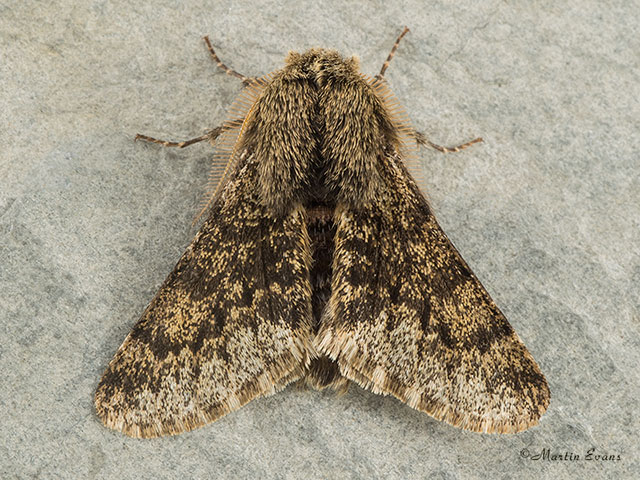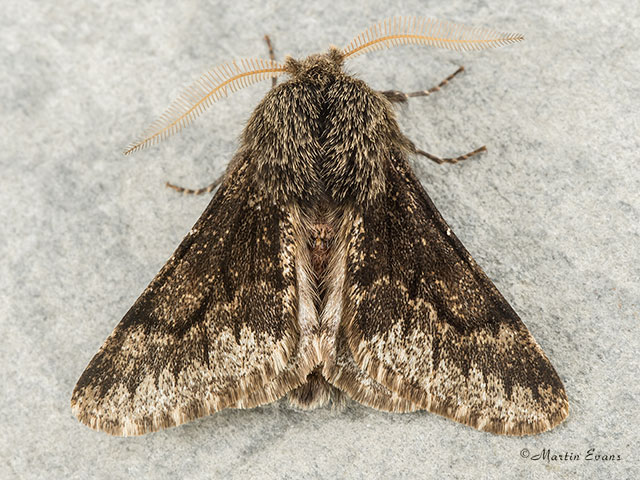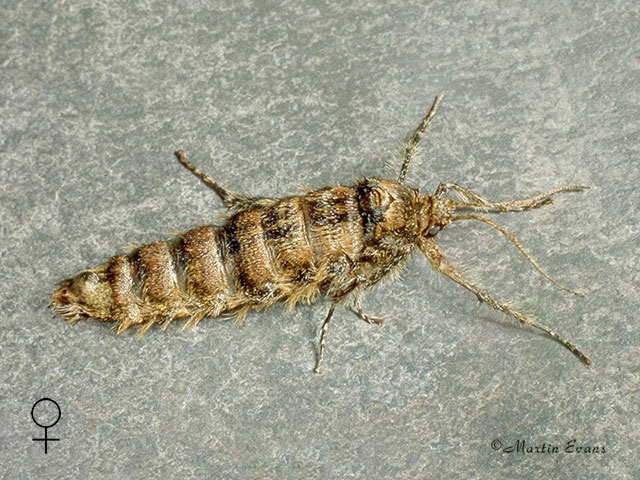Geometridae
70.246 Small Brindled Beauty Apocheima hispidaria ([Denis & Schiffermüller], 1775)
Local
Similar species: The thick, dark, wavy cross-lines, orange antennae and small size should distinguish the males of this moth from similar species. The females of Pale Brindled Beauty Phigalia pilosaria are less broad at the front of the abdomen and thorax and have a more continuous pair of lines down the dorsal.
Forewing: 15 to 17mm
Habitats: Mature oak woodland and hedgerows with mature oaks in well wooded areas.
Habits: The male comes to light. The female can be found by searching at the base of tree trunks at sunrise.
Foodplant: The larva feeds on Pedunculate Oak and probably Sessile Oak. It has also been recorded from Hazel, Hawthorn, Silver Birch, English Elm, Hornbeam and Sweet Chestnut. It pupates in the soil.
On the European mainland it has also been recorded feeding on Beech, sallows and Alder.




